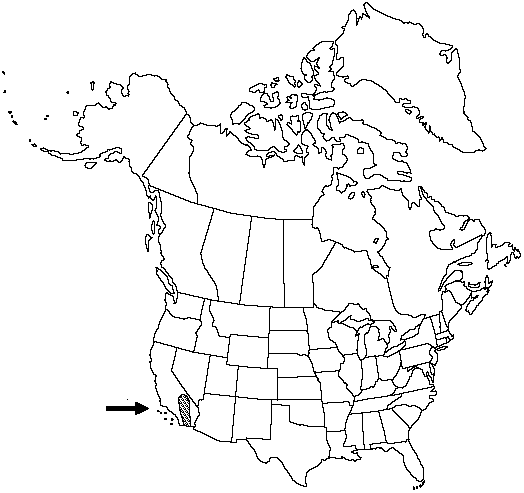Difference between revisions of "Cheilanthes viscida"
Bull. Torrey Bot. Club 6: 191. 1877.
FNA>Volume Importer |
imported>Volume Importer |
||
| (One intermediate revision by the same user not shown) | |||
| Line 47: | Line 47: | ||
|publication year=1877 | |publication year=1877 | ||
|special status= | |special status= | ||
| − | |source xml=https:// | + | |source xml=https://bitbucket.org/aafc-mbb/fna-data-curation/src/2e0870ddd59836b60bcf96646a41e87ea5a5943a/coarse_grained_fna_xml/V2/V2_819.xml |
|genus=Cheilanthes | |genus=Cheilanthes | ||
|species=Cheilanthes viscida | |species=Cheilanthes viscida | ||
Latest revision as of 20:25, 5 November 2020
Stems short-creeping, usually 4–8 mm diam.; scales uniformly brown, linear-subulate, strongly contorted, loosely appressed, persistent. Leaves clustered, 6–30 cm; vernation circinate. Petiole dark brown, flattened or slightly grooved distally on adaxial surface. Blade narrowly oblong to linear, 3-pinnate-pinnatifid at base, 1–4 cm wide; rachis flattened or slightly grooved adaxially, lacking scales, with monomorphic pubescence. Pinnae not articulate, dark color of stalk continuing into pinna base, basal pair slightly smaller than adjacent pair, ± equilateral, appearing glandular pubescent adaxially. Costae green adaxially for most of length; abaxial scales absent. Ultimate segments oblong to lanceolate, not beadlike, the largest 3–4 mm, abaxially and adaxially glandular-pubescent with short, sticky, capitate glands. False indusia marginal, weakly differentiated, 0.05–0.25 mm wide. Sori usually discontinuous, concentrated on apical and lateral lobes. Sporangia containing 64 spores.
Phenology: Sporulating late spring–fall.
Habitat: Cliffs and rocky slopes, usually on igneous substrates
Elevation: 200–1300 m
Distribution

Calif., Mexico in Baja California.
Discussion
Cheilanthes viscida is confined to a relatively small region in the deserts of California. Variations in spore size among populations suggest that the species may include more than one cytotype.
Selected References
None.